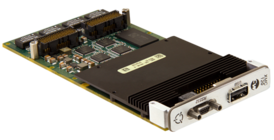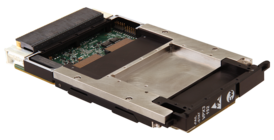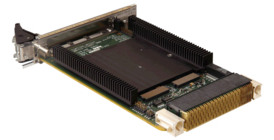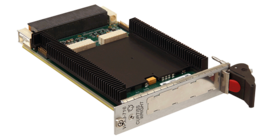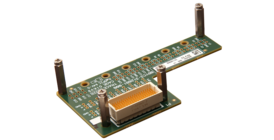
- Overview
- Specifications
- Downloads
- Featured Products
- Request a Quote
- Product Support
In today’s market, customers are looking to maximize their I/O capabilities without adding extra hardware. The use of PMC or XMC mezzanine modules provides this ease of expansion.
While I/O from a single board computer (SBC) in a development system can be accessed through the Rear Transition Module (RTM), I/O originating from a mezzanine card is often much more difficult to access in a lab or development environment. Many Curtiss-Wright RTM modules provide a simple expansion connector, permitting easy breakout of front mezzanine module I/O signals using an RTM Interface Module, or RIM. A RIM module mounted on the RTM enables easy access to the mezzanine I/O signals. Curtiss-Wright offers two RIM module variants for this purpose – a low-speed variant and a high-speed variant. Both variants support 3U and 6U RTM designs and attach to the RTM through a VITA 61 XMC connector which directly maps to the front module’s XMC Pn6 I/O connector.
While many Curtiss-Wright modules already have custom-designed RIMs to break out specific I/O signals to pre-defined connectors, other custom solutions or mezzanines that do not have breakout RIMs can use either of these variants.
Both variants can be used on the following Curtiss-Wright RTMs, as well as any 3rd party RTM that supports Pn6 module I/O:
- RTM3-716
Key Features
- Generic RIM modules providing access to XMC Pn6 I/O signals on Curtiss-Wright RTM modules
- RIM modules available supporting both low speed and high-speed differential signaling
Applications
- For systems needing breakout I/O from XMC mezzanine cards mounted on VPX modules
- For customers requiring their own cabling solutions
RIM Modules


